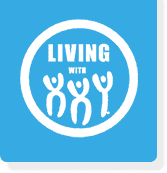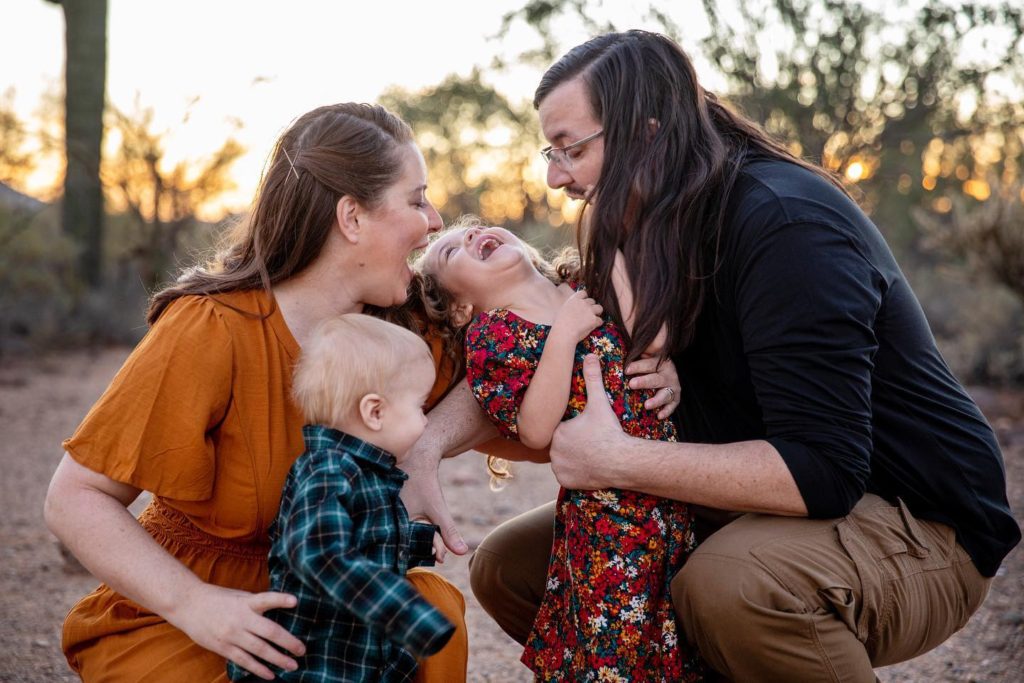The voice of Jared Pike
Before Jared Pike and his wife married, they discussed their future. Part of their vision for a long, healthy life together included having a family. Therefore, when the fifth anniversary of trying for a baby came around without any results, they realized something might be wrong. They never expected to hear the life-changing news that not only was Jared infertile, but it was also because of a chromosomal variance called Klinefelter syndrome. Jared’s male infertility was the reason that led them to foster care, adoption, and self-acceptance.
Trying for a baby:
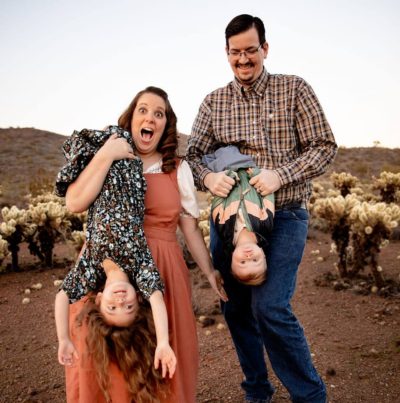 Though foster care was something Jared’s wife hoped to do, Jared wanted to try to have biological children first. After some contemplation, the couple decided to start a family before opening their home to foster children.
Though foster care was something Jared’s wife hoped to do, Jared wanted to try to have biological children first. After some contemplation, the couple decided to start a family before opening their home to foster children.
For five years, their hopes were dashed month after month. Things weren’t progressing the way they’d hoped. They sought answers from healthcare providers, who suggested a myriad of solutions. Jared was working overnight shifts as a security guard. One doctor told a switch back to a daytime shift to regulate his circadian rhythm. Another recommended adjustments to diet, but to no avail.
Jared also gave several sperm samples, resulting in a negative sperm count. No provider expressed concern. Three different doctors continued to suggest a wait-and-see approach. No one said the issue could be the result of a chromosomal variance.
An unexpected diagnosis:
As the fifth year of trying to conceive slid by without a pregnancy, Jared became frustrated and requested a referral to an endocrinologist. The specialist wanted to order several tests already done, but Jared didn’t see the point. He wasn’t sure how time would fix his azoospermia. How would sperm suddenly appear where there hadn’t been any? Running out of options, the specialist ordered a karyotype test.
Jared had never heard of such a test, so they went home and looked it up. It turned out that Jared had something different about him: an extra X chromosome or Klinefelter syndrome.
Understanding the diagnosis:
When the results came back, Jared was stunned. In a clinical, matter-of-fact way, the endocrinologist told Jared, “You have something called Klinefelter syndrome. The endocrinologist told Jared, “You have something called Klinefelter syndrome. It means you have 47 chromosomes and male infertility.”
The news “sucked” and was a “devastating blow” to the couple. For a couple of months, Jared felt depressed and overwhelmed as he tried to wrap his mind around the diagnosis. The research didn’t help, as almost a decade ago, there was very little positive information on the Internet about Klinefelter syndrome and male infertility .
Moving forward:
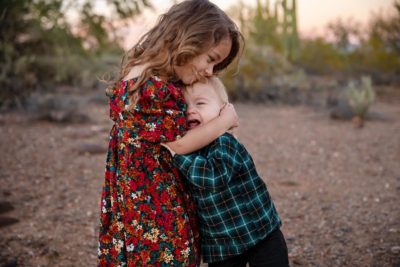

Over the next year, the couple tried multiple IUI treatments. While they attempted to conceive a child, Jared continued his grieving process. He let go of his expectations for how his family should look. He realized he could still have a family and be a paternal figure for a child, even if he wasn’t related to them. During this shift, Jared also began researching Klinefelter syndrome and male infertility.
Jared found a “lot of misinformation about Klinefelter syndrome” and avoided the outdated studies from the 1970s and 1980s. He focused on newer research and began seeking community. He turned to Facebook and found support groups where he connected with others going through similar experiences. Rather than letting depression or anxiety take control, Jared channeled that energy into finding out more. He learned to advocate for himself while on the journey to accepting his diagnosis and male infertility.
Understanding himself:
The diagnosis provided some unexpected clarity for Jared. He reflected upon his childhood, and realized there might’ve been unrecognized symptoms. When Jared was fourteen, he grew six inches in one summer. He experienced joint pain, so his mother brought him to the doctor. Out of the battery of tests performed, the family stopped ordering a karyotype. With nine children in the family, paying thousands of dollars out of pocket for a test they were told would likely provide no answers wasn’t possible. However, his mother felt the heartache of “what if” Jared didn’t blame them for not getting the test in his teens. They did everything they could with the resources they had.
Jared considered having a microTESE to see if viable semen could be found but ultimately decided against the procedure. After several failed rounds of IUI, Jared and his wife decided to take a break, they had more sperm saved if they chose to go forward with IVF in the future. Rather than continue the expensive procedure, they explored the possibility of fostering and adoption.
Creating a family:
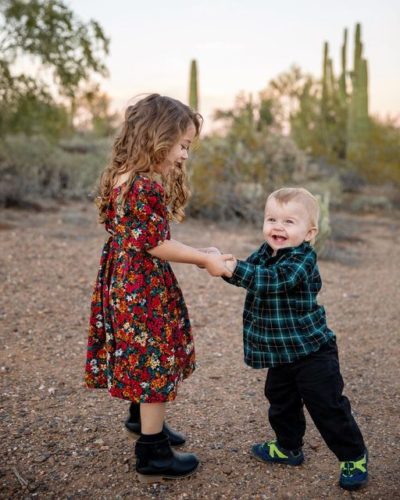

Mentoring and supporting families is a mission dear to Jared’s heart. Not only does he care for the children while they are with him, but he also supports and mentors their parents. Jared and his wife see the relationships with their foster families as “valuable and important. That’s something we value in our lives and family.” Fathering and mentoring families gives him great joy, so they can get their children back and succeed as a family.
In the meantime, Jared made a career switch. While he’d been considering a career in law enforcement, foster care made him realize he had a different calling. Jared felt a career in education would be more outstanding service to his community and help his foster children. He decided to become a special education teacher. He said, “I needed to know how to deal with the trauma these kids are coming into my home with. I needed to know how to educate the kids coming into my home and their parents on better care for themselves. And how to teach the child within their home.”
Gaining a daughter:
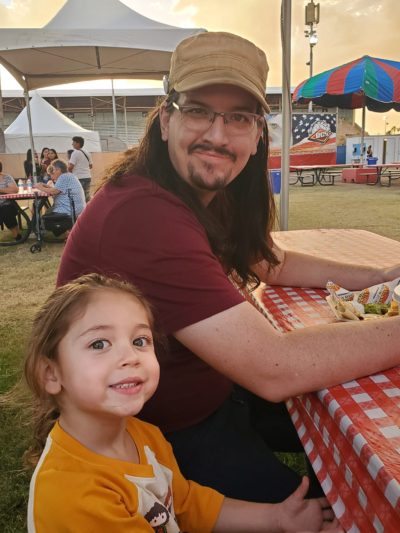

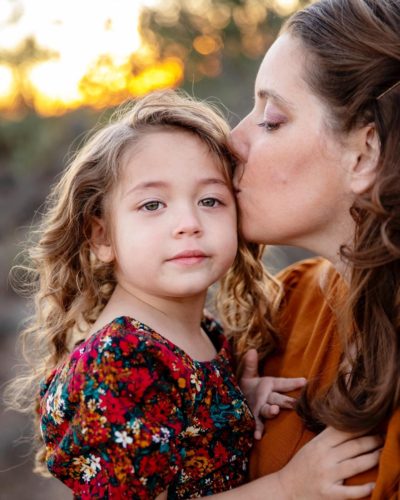

Not long after their daughter turned two, the adoption stood finalized. Jared said adoption was “euphoric.” Even though they don’t share DNA, their relationship is everything Jared dreamt of when raising a child. They share a close bond and connection; his daughter is a “total Daddy’s girl.” She’s elated when he comes home and runs to greet him with hugs and kisses. Jared said, “Those are the things I dreamt of having. I have it with her, and she’s not related to me. But she is my daughter, and it’s wonderful in every aspect of it.”
After finalizing the adoption, the family took eleven months off from fostering to focus on their new daughter. They reopened their home in December last year at their daughter’s request and began accepting foster children four and under. It was essential to them for their daughter to be the oldest child in the home. Jared and his wife include her in the decision of whether or not to accept a foster placement. Fostering is a family choice, and it’s essential to them. She feels like an important part of that process. They hope to open their home to older children in the future.
Being open about male infertility :
Their family is open about Jared’s diagnosis, his male infertility and their daughter’s beginnings. They don’t hide that she’s adopted but rather embrace it as part of their family’s story. Their daughter knows her biological mom’s name, and she couldn’t care for her, so she was adopted.
Jared said, “her adoption story is significant for her to know.” The biggest challenge for them is not having access to her medical history, which is a frustration Jared understands. Growing up, he exhibited some symptoms of Klinefelter syndrome he didn’t fully understand, but now does. He wanted to know what could be lying ahead for his daughter’s health rather than taking a shot in the dark with her medical care.
As an educator, Jared is a resource to his students. His experience as a foster parent has given him a unique perspective on the challenges students in the system face. He’s made it known he’s available for them, whether to talk about their day, their case, or find ways to help. He said, “It brings joy to my life knowing I’m helping them.”
Acceptance:
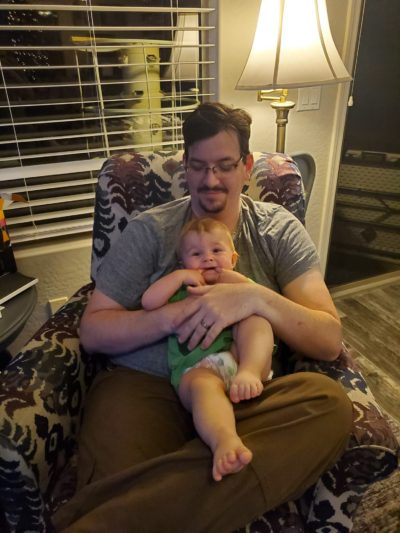

He added, “You could have a stepdad, but call him your dad. People might say you don’t look like your dad, but that’s my dad because he raised me. He taught me how a man should act and how to do things. He was a father, an individual who raised me and was there for me. It’d be nice, and it’d be lovely to have a kid that has my DNA and came from me. That’s an outdated way of thinking. That’s not what it is anymore. That line of thinking isn’t healthy. It only leads to dark thoughts and spirals you downward. It doesn’t lead to positive places. That mindset change for me took a while. It took me a while to see it and be able to process that. I’m doing what’s right. I’m doing everything I can as a father.”
What he’d say to the XXY community facing male infertility :
Jared’s thoughtfulness extended to what he’d tell the XXY community about pursuing fatherhood. He encouraged men going through infertility as part of their diagnosis to take time to work through their feelings. Jared said, “Find yourself. Find where you are in the process. It took me a while to decide if I would close the door on microTESE. You may or may not have viable sperm and be able to have a kid through that process. That fertility process has become more available for other individuals besides those experiencing infertility. The IVF process is for us as well. We have an extra step we have to go through. So if that door’s not closed for you, pursue that door. Pursue that microTESE option. If that’s closed for you, and you want to go with adoption, there are many methods of adoption you can do.”
Adoption:
Regarding adoption, Jared was clear it’s not a decision to take lightly. He explained, “there are other things that come with adoption. There are levels of trauma that come with adoption. Just because I adopted this little girl doesn’t mean she doesn’t have the trauma that comes with her. A family lost out on adopting her and underwent a grieving process. Her bio mom doesn’t have her. Different things have to need considering.”
Foster care:
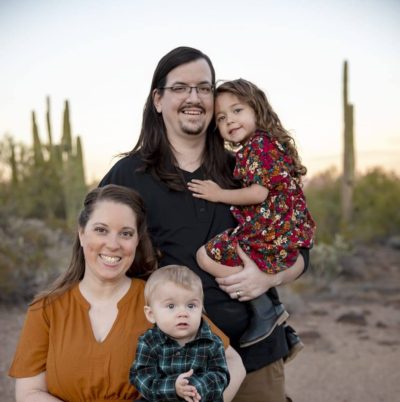

Though the road to having a family might look different than initially anticipated, Jared’s optimistic about what the Klinefelter syndrome community offers. He said, “Can we, as Klinefelter syndrome men help children through that process? I think we can. If diagnosed at a younger age, there are things you’ve had to go through and process. You can help a young man with other trauma.”
“If foster care’s not for you, consider mentoring. You could mentor a child. You could help them learn how to find a job or help them with their schoolwork. Become an advocate for them if they have an IEP, show up to their IEP meetings, and help them gain better educational services. Those are things available and out there to help you fill that void or to help you process that void as well.”
What parents should know:
Jared stressed the importance of transparency with children diagnosed with Klinefelter syndrome. He compared it to being open with his daughter about her adoption and said, “If I don’t talk to her and don’t discuss where she came from or her story, then why would she talk to me about things she needs? Will your son talk to you about something he needs with Klinefelter syndrome or how he’s feeling? What paths will you take to help your son through these things? How are we going to let others know about male infertility?
Jared added, “that’s what Ryan’s doing with the videos and Living With XXY. He’s helping build the XXY community. It’s all related, even if we don’t think it is; there’s a connection to all of it.”
Professional photohraphy provided by: Prestwich Photography
